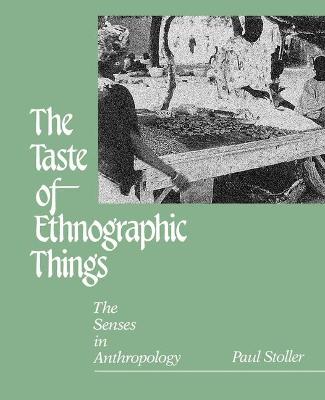Contemporary Ethnography
2 total works
Among the Songhay of Mali and Niger, who consider the stomach the seat of personality, learning is understood not in terms of mental activity but in bodily terms. Songhay bards study history by "eating the words of the ancestors," and sorcerers learn their art by ingesting particular substances, by testing their flesh with knives, by mastering pain and illness.
In Sensuous Scholarship Paul Stoller challenges contemporary social theorists and cultural critics who—using the notion of embodiment to critique Eurocentric and phallocentric predispositions in scholarly thought—consider the body primarily as a text that can be read and analyzed. Stoller argues that this attitude is in itself Eurocentric and is particularly inappropriate for anthropologists, who often work in societies in which the notion of text, and textual interpretation, is foreign.
Throughout Sensuous Scholarship Stoller argues for the importance of understanding the "sensuous epistemologies" of many non-Western societies so that we can better understand the societies themselves and what their epistemologies have to teach us about human experience in general.
Anthropologists who have lost their senses write ethnographies that are often disconnected from the worlds they seek to portray. For most anthropologists, Stoller contends, tasteless theories are more important than the savory sauces of ethnographic life. That they have lost the smells, sounds, and tastes of the places they study is unfortunate for them, for their subjects, and for the discipline itself.
The Taste of Ethnographic Things describes how, through long-term participation in the lives of the Songhay of Niger, Stoller eventually came to his senses. Taken together, the separate chapters speak to two important and integrated issues. The first is methodological--all the chapters demonstrate the rewards of long-term study of a culture. The second issue is how he became truer to the Songhay through increased sensual awareness.

